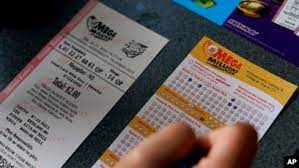
The earliest recorded lottery was held in the Low Countries and offered monetary prizes. The Bible states that God gave Moses the task of apportioning territory and counting Israel’s population. Many cities in the Low Countries operated lotteries to fund aid for the destitute and defenses. The existence of such a lottery has been traced back to the 16th century. An entry from 9 May 1445 in L’Ecluse’s archives mentions a lottery that brought in 400 florins (about $170,000 in 2014 dollars).
In the United Governments, lottery games have gained widespread acceptance and now provide substantial money for many states. One argument against national lotteries is that they bring in naive people who spend too much money in the hopes of winning a fortune. No matter how much money you win, it’s still crucial to play fair and stay within your financial limits. Here’s some information to consider if you’re considering about purchasing a lottery ticket.
The odds of winning the lottery are slim compared to the cost of a ticket. There is a one in 32,000,000 chance of winning the jackpot on data hk, Mega Millions, or the Mega Lottery. Playing the lottery wisely could, therefore, result in major societal shifts. However, if you’re on the fence about whether or not to play the lotto, it’s smart to get professional advice.
The lottery is a fantastic source of extra cash. One can achieve victory in a number of distinct ways. To advertise their games, the New York Lottery purchases STRIPS, which are a type of special U.S. Treasury Bond. Such bonds are sometimes known as “zero-coupon bonds” due to the lack of a coupon payment. Retailers who sell lottery tickets also receive a cut of any money made from the lottery. At the close of each fiscal year, the government receives a refund of the lottery’s earnings.
A lottery is “a game in which participants pay a nominal sum for the opportunity to win a substantial sum,” according to the American Heritage Dictionary. Cash payouts are typically substantially lower than the advertised jackpot after income taxes and the time value of money are factored in. Annuity payments avoid these issues. The amount of money that must be withheld from lottery winnings varies by state and by the type of money that was invested.
Lotteries continued to thrive in the United States even after postal authorities attempted to stamp them out. In fact, the Louisiana Lottery, one of the most popular lotteries in the country, has been operating continuously for 25 years, with monthly prize payouts averaging around $250,000. Because of rampant fraud and corruption, the Louisiana Lottery was abolished that year, in 1963. As a result, people started speaking out against lottery activities. By the end of the eighteenth century, lotteries had been banned all over the United States.